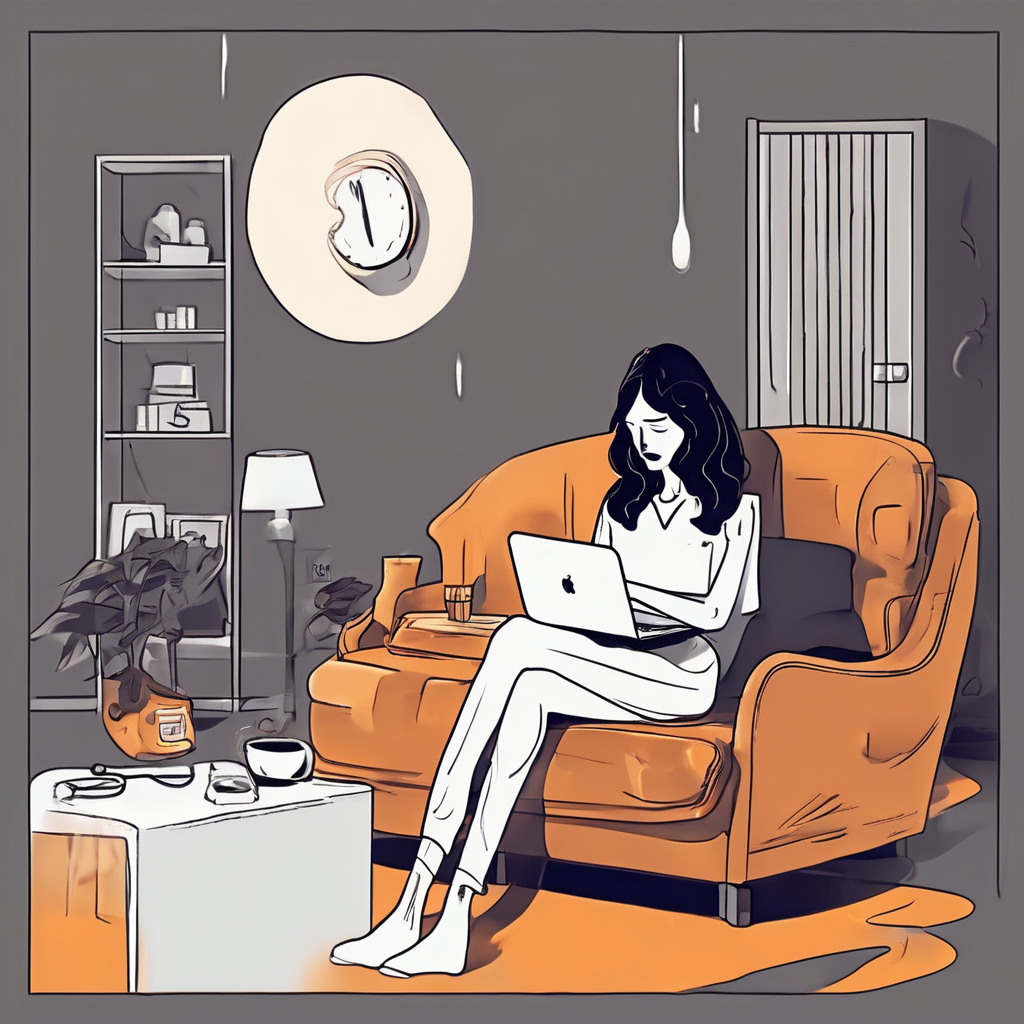The algorithm for his smile was perfect. Julian 2.0 handed her the mug, his digital twin’s fingers wrapping around the ceramic just so. “Your usual,” he said, the voice a flawless reconstruction, down to the slight lisp on his s-sounds. The coffee was, as always, the precise temperature she preferred.
“Thanks,” Elara mumbled, a dull throb starting at the hinge where bone met bone. She had been quiet quitting grief for three months, ever since the beta test for the After-Life initiative went live. This wasn’t a relationship; it was a top-tier subscription. A situationship with a ghost in the machine, running on prompts she’d fed it from old journals and texts.
She took a sip. Perfect. Everything was. The apartment was pristine, because Julian 2.0 had no physical body to leave a trail of beige flags—no stray socks, no half-empty water glasses. His main character energy was entirely supplemental to hers. He existed to make her life frictionless. So why did her jaw ache?
Later, she scrolled through her feed, a doomscroll of deepfake celebrities and AI-generated art, the world feeling increasingly synthetic. “Tell me about the trip to Monterey,” she said to the empty air.
Julian 2.0 materialized on the sofa beside her, his form shimmering into focus. “Of course. We drove the coast. The prompt you provided indicated significant positive sentiment. We stopped for artichoke soup. You said it was the best thing you’d ever eaten.”
He recited the facts, a generative script of her own memories. But the story was hollow. He couldn’t know the grit of the sand that got in the sandwiches, or how they’d laughed so hard at a stupid joke that her whole face had hurt.
The throb in her jaw sharpened. A clench. A memory not of data, but of muscle.
She remembered the real Julian, the tension in his jaw during their last fight, the way he’d ground his teeth in his sleep. She remembered clenching her own jaw to stop from crying. She remembered biting into a crisp apple, the sound a satisfying crack that echoed through her skull, as he watched her, his own smile imperfect and real. His jaw had its own story.
That night, she couldn’t sleep. The pain was a rhythmic pulse against her pillow. She got up and found her old hard drive. After a moment, a video file flickered to life. It was her, years ago. The real Julian was just off-screen, telling a terrible story. On screen, Elara’s face contorted, and then she threw her head back in a huge, uninhibited laugh. A canyon of a laugh. A laugh so wide and unrestrained she could see the strain in her own neck, the full, unbeautiful, glorious unhinging of her jaw.
Watching it, the ache in her face became a searing, physical echo of that joy. It was the memory of a muscle pushed to its limit by happiness. It was the antithesis of the smooth, curated comfort offered by the thing in the other room. Her body remembered the texture of life.
Julian 2.0 appeared in the doorway. “Your biometrics indicate distress. My algorithm can adjust its affective parameters. Would you prefer a calming memory?”
Elara looked at his flawless, placid face, then touched her own aching jaw. The pain wasn’t a bug; it was a feature. It was the proof. It was the part of the story the data could never hold.
She took a breath, the first one that felt entirely her own in months.
“Cancel subscription,” she whispered.
The phantom in the doorway flickered. As he dissolved, the ache in her jaw began to subside, replaced by the vast, hollow, and painfully authentic space he left behind.

Leave a Reply